Disclosure: This article contains affiliate links. We may earn a commission from purchases at no extra cost to you, which helps our travel content.
The moment I stepped off the plane in Nuku'alofa, Tonga's laid-back capital, I knew I was somewhere special. The humid air carried the scent of frangipani and salt water, while the melodic Tongan language floated around me at the tiny airport. After months of teaching in Adelaide, I was craving cultural immersion that went beyond tourist traps, and Tonga promised exactly that. This overlooked Pacific paradise offers something increasingly rare in our hyper-connected world: genuine cultural traditions that haven't been manufactured for visitors. Over my week in Nuku'alofa, I discovered a place where ancient customs aren't performed for tourists but lived daily. From participating in traditional feasts to learning handicraft techniques passed down through generations, my budget-friendly cultural adventure in the Kingdom of Tonga became one of those transformative travel experiences that remind you why you left home in the first place.
Finding Authentic Accommodation in Nuku'alofa
After years of hostel-hopping across Southeast Asia, I've developed a knack for finding accommodations that offer cultural immersion without breaking the bank. In Nuku'alofa, I struck gold with a family-run guesthouse near the waterfront, where I paid just 40 Tongan pa'anga (about $17 USD) per night.
My host family, the Tupous, welcomed me with the kind of genuine warmth that no luxury hotel could ever manufacture. Their modest home-turned-guesthouse featured simple rooms with shared bathrooms, but what it lacked in amenities it more than made up for in cultural authenticity. Each morning, I'd wake to the sounds of hymns being practiced (Tonga is deeply religious) and the smell of fresh papaya.
The true value came from the family integration. Within days, I wasn't just a guest but an honorary family member. Mele, the grandmother, taught me basic Tongan phrases each morning over breakfast, while her son Sione offered insider tips on which village events welcomed visitors. This kind of cultural access is precisely why I choose family homestays over hotels whenever possible.
For those wanting slightly more privacy while still experiencing Tongan hospitality, several budget guesthouses offer private rooms with shared facilities for 60-100 pa'anga per night. I recommend bringing a good quality sleep mask and earplugs since Tongan homes often have thin walls, and roosters have no concept of sleeping in!
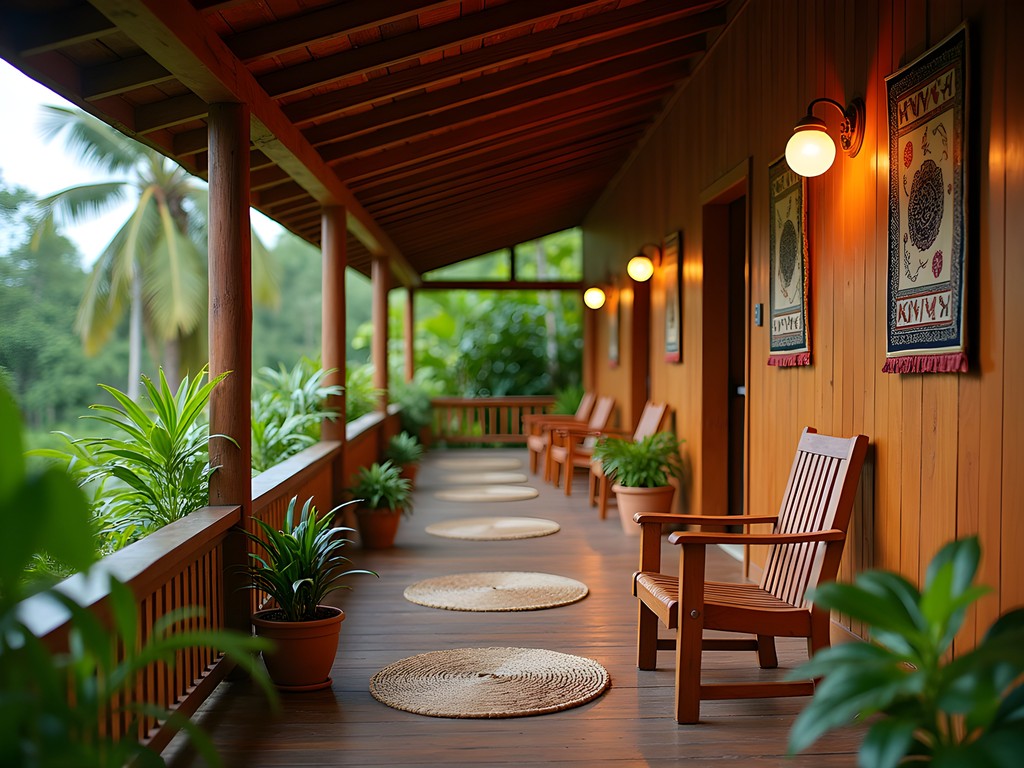
💡 Pro Tips
- Ask about 'family rate' discounts for stays longer than 3 nights - many guesthouses offer them but don't advertise it
- Bring small gifts from your home country for your hosts - educational items for children are especially appreciated
- Learn basic Tongan greetings (Mālō e lelei = hello) to instantly create goodwill with your hosts
The Sunday Experience: Church and Umu Feasts
If there's one day you absolutely cannot miss in Tonga, it's Sunday. The Kingdom takes its Sabbath seriously—most businesses close, and the day revolves around two central activities: church and food. I'm not particularly religious, but attending a Sunday service in Nuku'alofa was a cultural experience I wouldn't trade for anything.
I woke early and donned my most respectful attire (men should wear a tupenu - a formal skirt-like garment - though visitors can get by with long pants and a collared shirt). The Free Wesleyan Church near the Royal Palace welcomed me warmly, though I felt momentarily self-conscious as one of the few foreigners present. Any discomfort evaporated when the singing began—the famous Tongan harmonies filled the church with such power and beauty that I found myself moved despite not understanding a word.
After church comes the umu feast, where food is traditionally prepared in an underground oven. My host family invited me to join their Sunday meal, an honor I gratefully accepted. We gathered around mats on the floor as they unveiled dishes like lu pulu (corned beef wrapped in taro leaves), roasted pig, and various root vegetables like cassava and sweet potato. The food was served on banana leaves, and we ate with our hands—a practice I found both challenging and delightful.
What struck me most was how the Sunday feast strengthened family bonds. Three generations sat together, sharing food and stories, with elders given positions of honor. As a solo traveler often eating quick meals on the go, this communal experience reminded me what we've lost in our fast-paced Western dining culture.
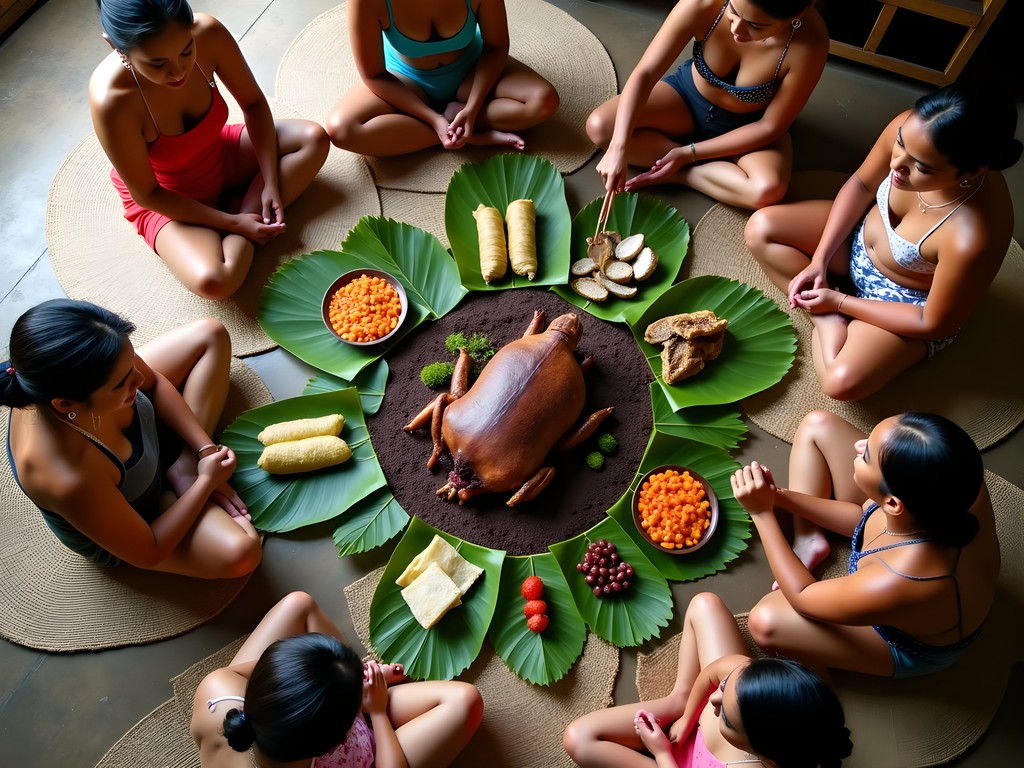
💡 Pro Tips
- Dress conservatively for Sunday activities - covered shoulders and knees are minimum requirements
- Bring a small contribution to any family feast you're invited to - fruit or dessert is always welcome
- When eating traditional style, use only your right hand and observe how locals sit cross-legged on the floor
Kava Ceremonies: Connecting Through Traditional Ritual
No cultural immersion in Tonga would be complete without experiencing a kava ceremony. Kava—a mildly narcotic drink made from the crushed root of the kava plant—sits at the heart of Tongan social life. Unlike the commercialized kava experiences offered in some Pacific destinations, in Nuku'alofa, you can find authentic ceremonies where tourists are rare.
My opportunity came through Tevita, a teacher I met at a local market. He invited me to join his village's regular Thursday night kava circle, an invitation I jumped at despite some apprehension about the proper etiquette.
We gathered in a community hall where about fifteen men sat cross-legged in a circle around a large wooden kava bowl (kumete). As a visitor, I was given a position of honor, though I insisted I wanted the authentic experience, not special treatment. The ceremony follows strict protocols: the kava master prepares the drink by mixing the powdered root with water, straining it through coconut fiber, then serving it in a shared coconut shell cup.
When my turn came, I was instructed to clap once before accepting the cup, drink it in one go (it tastes earthy and slightly numbing), then clap three times and say 'mālō' (thank you). The kava itself produces a subtle effect—a slight tingling around the mouth and a gentle relaxation throughout the body.
What makes these ceremonies special isn't the drink itself but the conversations that flow throughout the evening. For hours, we discussed everything from Tongan politics to rugby, from climate change impacts on the islands to local legends. I found my pocket notebook invaluable for jotting down Tongan phrases and cultural insights between rounds of kava.
By the evening's end, my tongue was slightly numb, but my heart was full of new connections and cultural insights that no guidebook could provide.
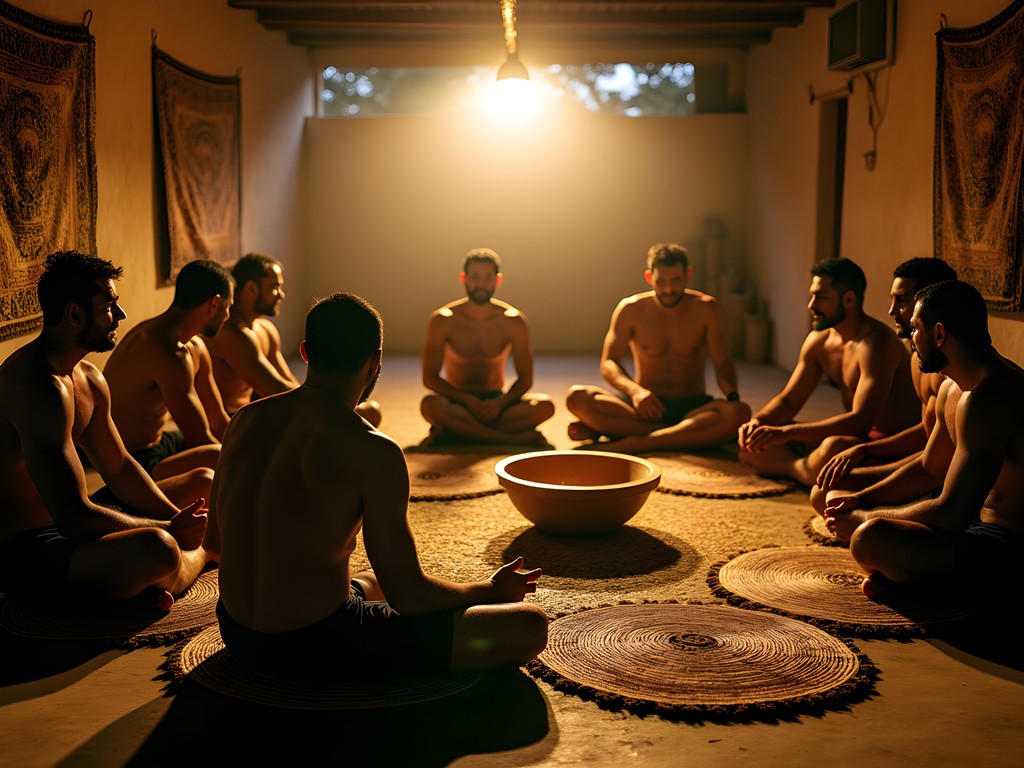
💡 Pro Tips
- Women can attend kava ceremonies in Nuku'alofa, but should ask about local customs first as traditions vary between villages
- Bring a small gift (like cookies or chips) to share with the group as a gesture of appreciation
- Don't plan anything important after a kava ceremony - the relaxing effects make early nights common
Handicraft Workshops: Learning From Master Artisans
One of my teaching colleagues in Adelaide had specifically requested I bring back authentic Tongan crafts, not the mass-produced souvenirs that plague tourist destinations. This mission led me to the Langafonua Handicrafts Centre, a women's cooperative in central Nuku'alofa where I discovered something even better than purchasing crafts—learning to make them.
The centre offers informal workshops where visitors can learn traditional craft techniques from master artisans. For just 25 pa'anga (about $10 USD), I joined a three-hour session on ngatu (tapa cloth) making. Tapa is a traditional bark cloth made from the paper mulberry tree and decorated with natural pigments in geometric patterns.
My instructor, Seini, had been making tapa for over fifty years, her fingers nimble despite her age. She showed me how the bark is soaked, beaten into thin sheets, and joined together with arrowroot paste. The rhythmic beating of the bark creates a soundtrack to daily life in many Tongan villages.
While my first attempts were laughably amateur, by the end of the session I had created a small piece with simple traditional patterns. The experience gave me profound respect for the skill and patience required—what took me three hours to clumsily produce, Seini could create in minutes with perfect precision.
On different days, the centre offers workshops in weaving pandanus mats, coconut jewelry, and basket making. I returned for a basket weaving session, creating a small market basket that I still use for grocery shopping in Adelaide—a functional souvenir that connects me to Tonga each time I use it.
I documented the process using my travel camera, which proved perfect for capturing the intricate details of the craftwork in the sometimes dim lighting of the workshop.
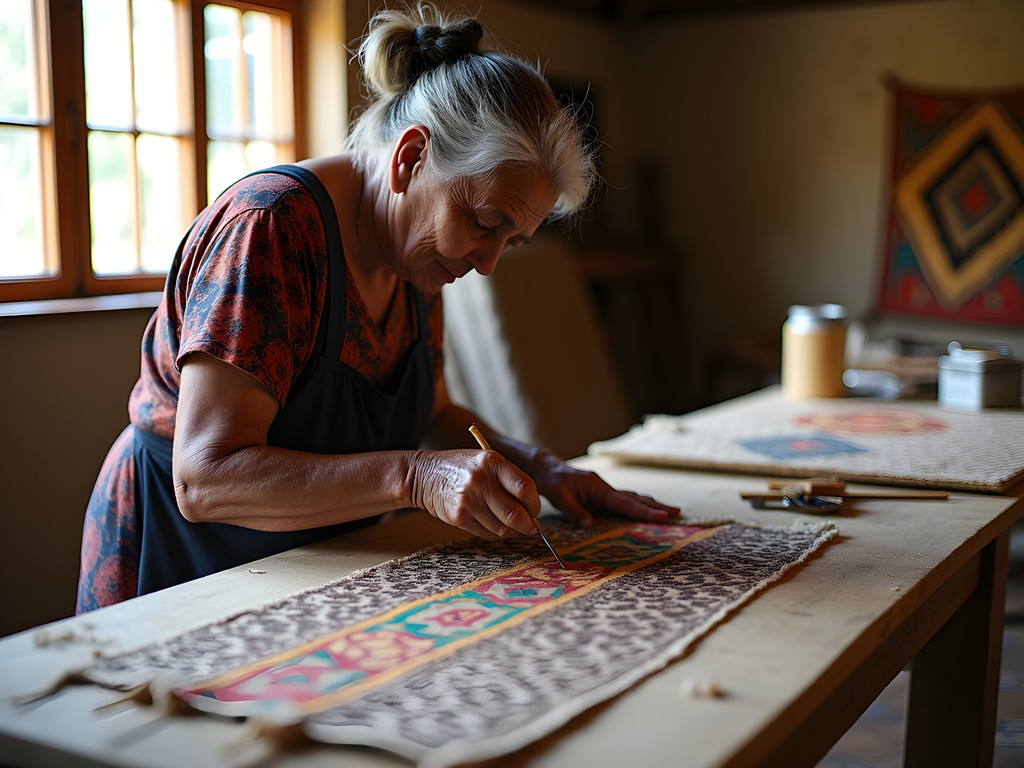
💡 Pro Tips
- Workshops aren't formally scheduled - visit the Langafonua Centre early in your trip to arrange sessions
- Bring small denominations of pa'anga as credit cards aren't accepted for workshop fees
- Ask permission before photographing the artisans or their traditional techniques
Royal Tongan Heritage: Palaces and Ceremonies
Unlike many monarchies that exist primarily for tourists, Tonga's royal family maintains genuine cultural and political significance. The Royal Palace in Nuku'alofa may not match the grandeur of European castles, but its white wooden Victorian architecture has a charm all its own, especially set against the blue Pacific backdrop.
While the palace interior isn't open to the public, I timed my visit to coincide with the Heilala Festival, an annual celebration of Tongan culture that often features royal appearances. During the festival, I witnessed a traditional royal kava ceremony that differed significantly from the casual village kava circles I'd experienced. The royal ceremony involves elaborate protocols, with participants wearing traditional formal attire and following precise movements that have remained unchanged for centuries.
Near the palace grounds, the Royal Tombs (Mala'e Kula) offer a glimpse into Tonga's royal history. The stone structures are relatively modest compared to royal burial sites elsewhere, but they reflect Tongan values of respect and dignity. A local guide named Pita offered impromptu history lessons as I explored the area, explaining the complex royal lineage and the significance of various monuments.
What fascinated me most was learning how Tonga's monarchy adapted to modern governance while maintaining cultural traditions. Unlike the purely ceremonial roles of many remaining monarchs, Tonga's king still holds significant constitutional powers, though recent reforms have moved the country toward greater democracy.
Visiting during a royal birthday celebration, I witnessed how deeply Tongans respect their monarchy, with elaborate decorations throughout town and special church services held in the royal family's honor. It's a relationship between people and monarchy that feels organic rather than maintained for tourism.
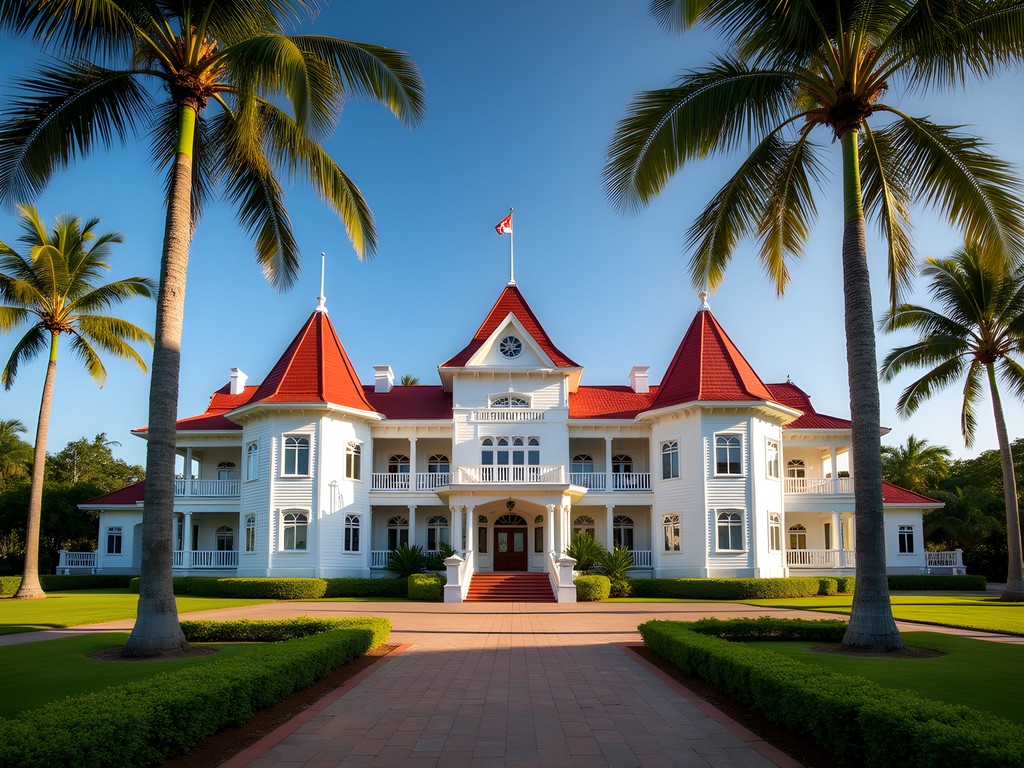
💡 Pro Tips
- Check local newspapers or ask at your accommodation about any scheduled royal appearances or ceremonies during your stay
- Dress respectfully when visiting areas near the Royal Palace - covered shoulders and knees are expected
- The area around the Royal Palace is best photographed in early morning light when the white structure glows against the blue sky
Village Life: Day Trips Beyond Nuku'alofa
While Nuku'alofa offers plenty of cultural experiences, some of my most meaningful encounters happened in smaller villages just outside the capital. Through a connection made at my guesthouse, I arranged a day trip to Kolovai, a traditional village about 30 minutes from Nuku'alofa.
My host, Latu, invited me to spend the day with his extended family, offering a glimpse into rural Tongan life that felt completely removed from tourist experiences. The day began with helping his uncle repair fishing nets, a skill I quickly proved terrible at, much to everyone's amusement. My clumsy attempts became an instant ice-breaker, and soon I was being shown proper techniques by everyone from teenagers to elders.
The village operated on what locals call 'Tongan time'—a relaxed pace where rigid schedules take a backseat to human connection. We moved between activities organically: helping with cooking, visiting the village school where children performed traditional dances with impressive skill, and eventually joining a community work project to clear brush around the village meeting house.
Lunch was an impromptu affair under a mango tree, with everyone contributing something from their homes. I was struck by how the entire village functioned as an extended family unit, with resources shared freely and children cared for collectively. It offered a living example of the communal values that have largely disappeared in my own culture.
In the afternoon, I joined several village women collecting pandanus leaves for weaving. They taught me to identify quality leaves and demonstrated the lengthy preparation process. My attempts to help with stripping and boiling the leaves provided more amusement for my hosts, but the good-natured teasing made me feel included rather than embarrassed.
For capturing these authentic moments, I relied on my smartphone, which proved less intrusive than a larger camera and produced excellent photos even in challenging lighting conditions.
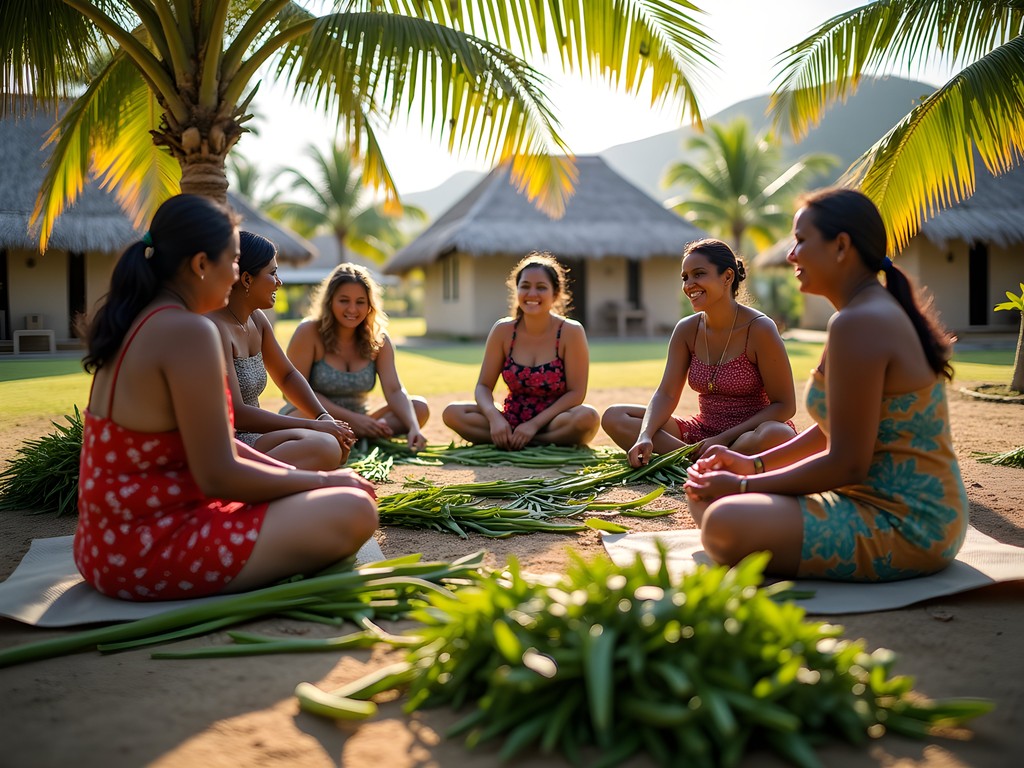
💡 Pro Tips
- Arrange village visits through local connections rather than tour companies for more authentic experiences
- Bring useful contributions like fresh fruit or coffee rather than candy or trinkets when visiting villages
- Learn the phrase 'tulou' (excuse me/pardon) to politely navigate village spaces, especially when passing between people
Final Thoughts
As my flight lifted off from Nuku'alofa's tiny airport, I found myself already planning a return visit. In just one week, Tonga had offered me cultural immersion that felt genuine in ways that increasingly rare in our tourism-saturated world. The Kingdom's isolation has preserved traditions that remain living practices rather than performances for visitors. What makes Tongan cultural experiences special isn't elaborate facilities or polished presentations, but the generosity with which locals share their daily lives and ancient customs. For travelers seeking authentic cultural connections on a modest budget, Nuku'alofa offers extraordinary value—not in luxury accommodations or fine dining, but in human connections that transcend the typical tourist experience. If you're willing to embrace 'Tongan time,' participate respectfully in community life, and approach each experience with genuine curiosity, you'll find yourself welcomed into traditions that have sustained these remarkable islands for centuries.
✨ Key Takeaways
- Family-run guesthouses provide both budget accommodation and cultural immersion opportunities
- Sunday church services and umu feasts offer authentic cultural experiences even for non-religious travelers
- Learning traditional crafts from master artisans creates deeper appreciation than simply purchasing souvenirs
- Village day trips provide the most authentic glimpse into traditional Tongan life and values
📋 Practical Information
Best Time to Visit
May to October (Tongan winter/dry season)
Budget Estimate
$40-60 USD per day for budget travelers
Recommended Duration
Minimum 5-7 days
Difficulty Level
Moderate

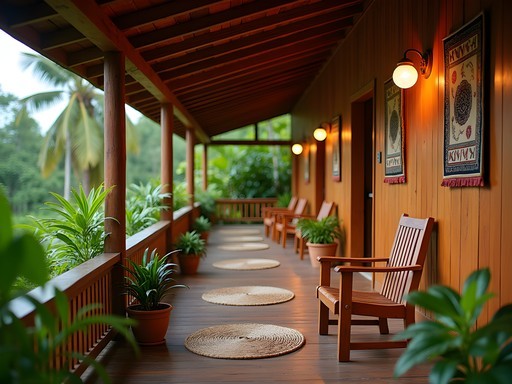
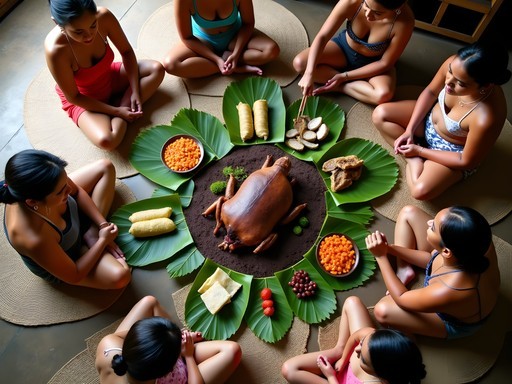
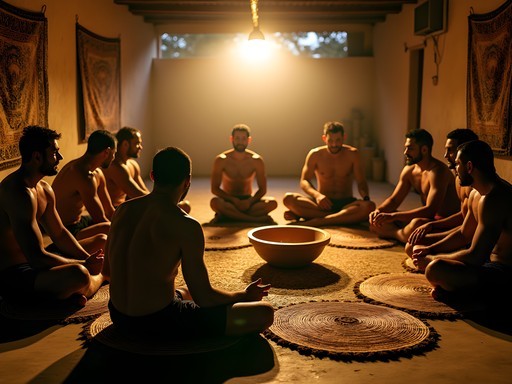
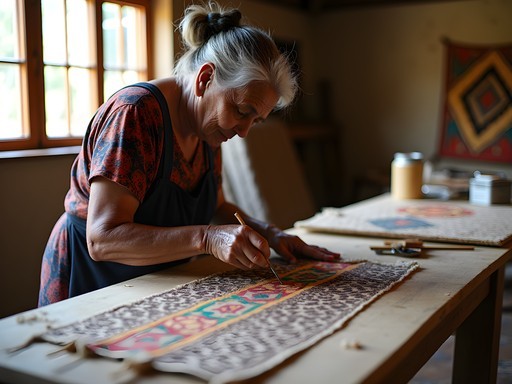
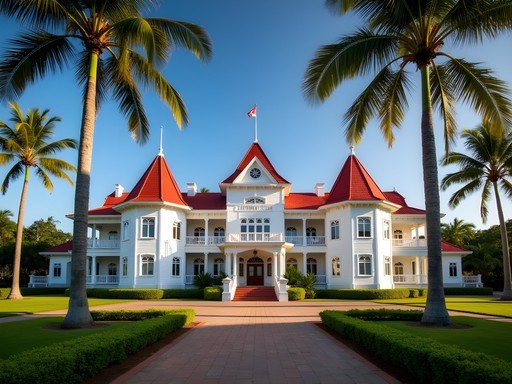
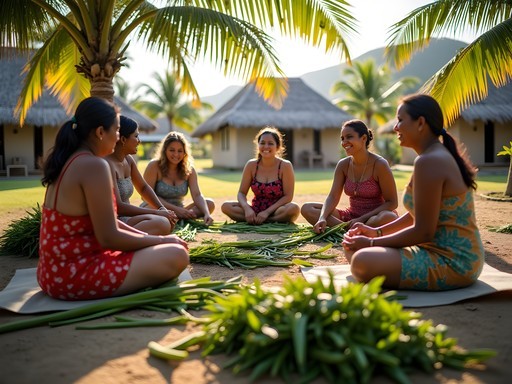






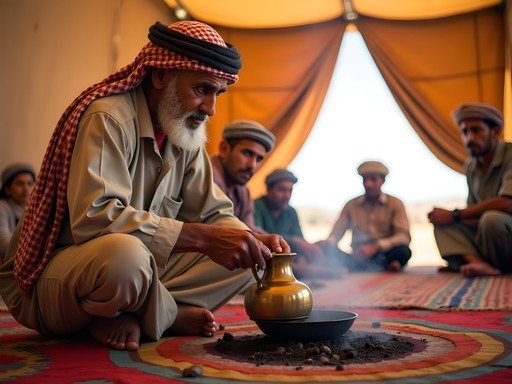
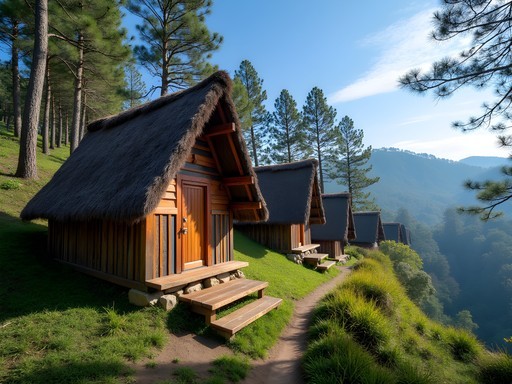
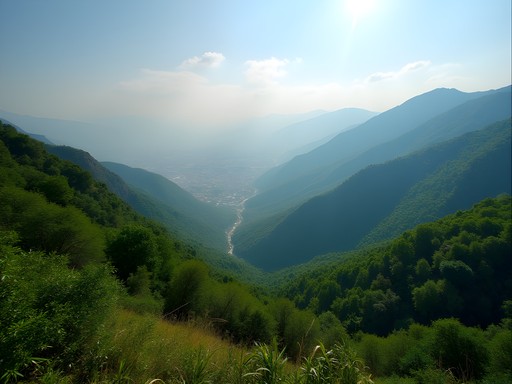

Comments
mountainlife
Beautiful post! Where did you end up staying? Looking at options for our trip next spring.
Corey Marshall
I split my time between Hafu's Guesthouse near the waterfront (basic but super friendly) and a homestay in a village just outside town that I found through the Tonga Visitors Bureau. The homestay was the more immersive experience by far - eating with the family and learning about daily life. Highly recommend that route if you're comfortable with simpler accommodations!
mountainlife
That homestay sounds perfect! Will definitely look into that option. Thanks!
Bryce Diaz
Corey, your post brought back so many memories! I spent three weeks island-hopping around Tonga in 2019, and Nuku'alofa was such a highlight. The handicraft workshops you mentioned were incredible - I still have the tapa cloth I helped make hanging in my living room. For anyone planning a trip: don't miss the Talamahu Market on Saturdays. The produce is spectacular, but the real treasure is upstairs where the women sell handmade crafts. And definitely try to time your visit with a rugby match if possible - watching locals play their national sport with such passion was unforgettable.
Corey Marshall
Thanks Bryce! Can't believe I forgot to mention Talamahu Market - great tip! I missed the rugby but heard it's quite the experience.
backpackway
I was in Nuku'alofa last year and can confirm the Sunday experience is absolutely not to be missed! We were invited to an umu feast by our Airbnb host and it was the highlight of our trip. The slow-cooked pork and taro were incredible. One tip: bring modest clothing for church services - shoulders covered and below-knee skirts/pants are a must. Women in our group borrowed puletasi (traditional dresses) from our host family which made for great photos and the locals appreciated the effort.
Bryce Diaz
So true about the modest clothing! I actually packed my sarong wrap specifically for this reason. Worked perfectly for church visits not just in Tonga but throughout the South Pacific. Did you try the otai drink? That coconut watermelon beverage blew my mind!
adventurehero
This looks amazing! Did you need any special permission to participate in the kava ceremonies or was it open to visitors?
Corey Marshall
Great question! Most guesthouses and tour operators can arrange for visitors to join a kava ceremony. Just be respectful of the customs they explain and you'll be welcomed. The one I attended was through my homestay host's family.
adventurehero
Thanks for the info! Definitely adding this to my bucket list.
BeachBum44
Adding this to my bucket list! 🇹🇴
NewZealandNomad
Heading there this December! Saving this post for reference.
Corey Marshall
You'll love it! December is a great time to visit. Feel free to DM me if you have specific questions about planning your trip.
CultureVulture
The Sunday umu feast was the highlight of my Tongan trip last year! We were invited by a local family we met at church. The underground cooking technique creates such unique flavors, especially for the taro and pork. One tip: if you're invited to an umu, bring something small as a gift - we brought coffee and chocolate which seemed to be appreciated. Also, be prepared to eat A LOT - refusing food can be considered impolite, and Tongan hospitality is generous beyond belief!
IslandHopper42
If you're visiting during summer months, bring a good reef-safe sunscreen - the Tongan sun is no joke! I got absolutely fried even though I thought I was prepared.
SunSeeker
So true! I learned that lesson the hard way too. Also, a hat is essential for those church services that sometimes go for hours outdoors.
TravelingTeacher
Those handicraft photos are stunning! The detail in the tapa cloth is incredible.
PacificDreaming
Just got back from Tonga last month! If you're going, don't miss the Talamahu Market on Saturdays - way better selection of handicrafts than the tourist shops and the prices are better too. We bought amazing tapa cloth directly from the artist!
skyseeker
Thanks for the tip! Adding it to my list. How much should I expect to pay for tapa cloth?
PacificDreaming
It really depends on the size and complexity! Small pieces were around 30-50 pa'anga, but the larger detailed ones can be 200+. Definitely worth it though - such incredible craftsmanship!
Venture X
Premium card with 2X miles, $300 travel credit, Priority Pass